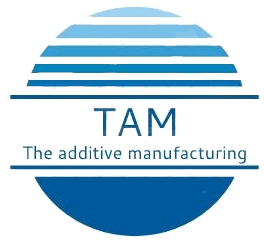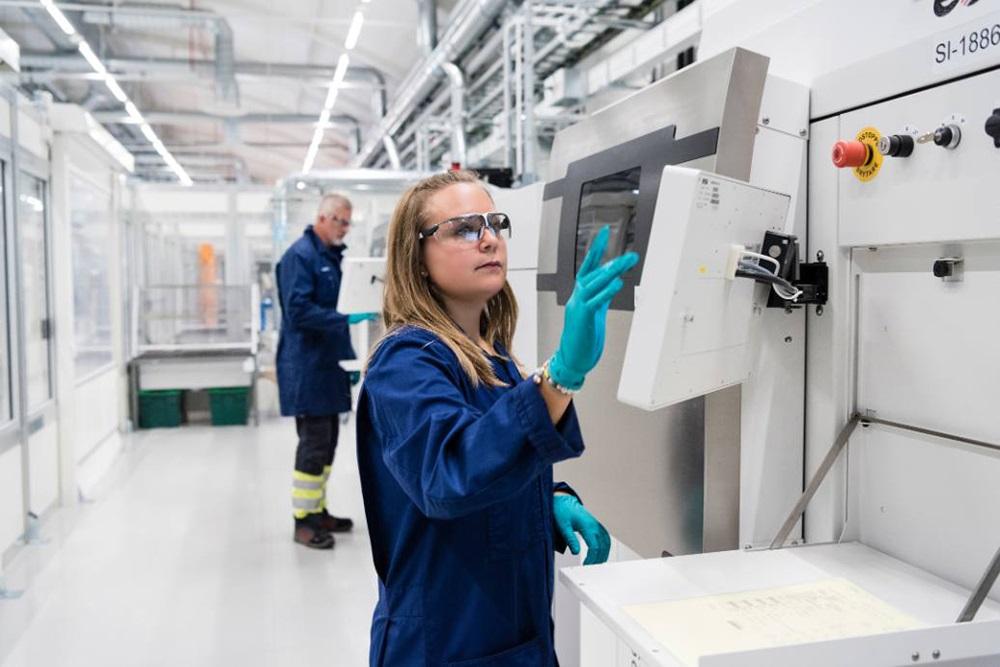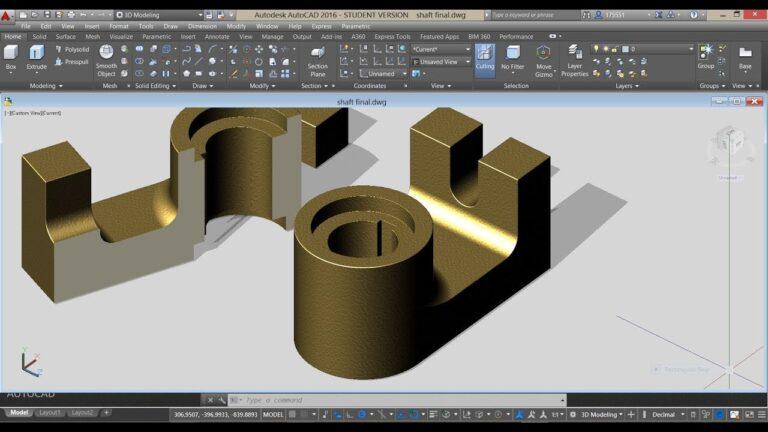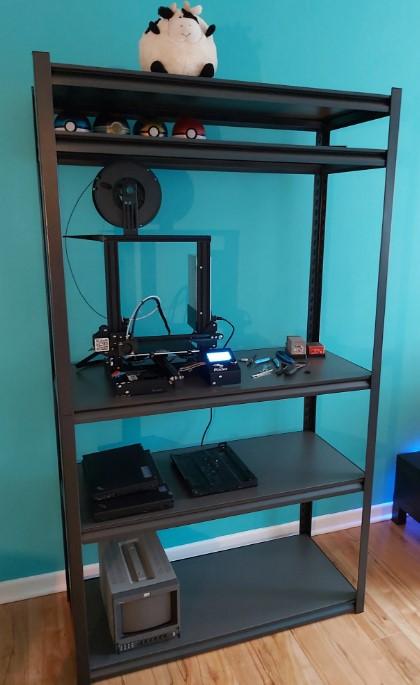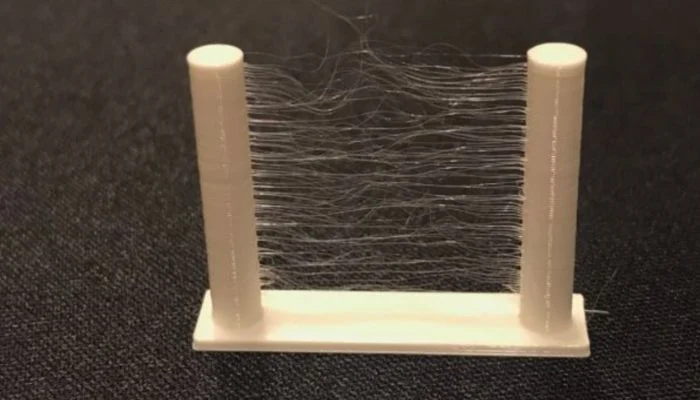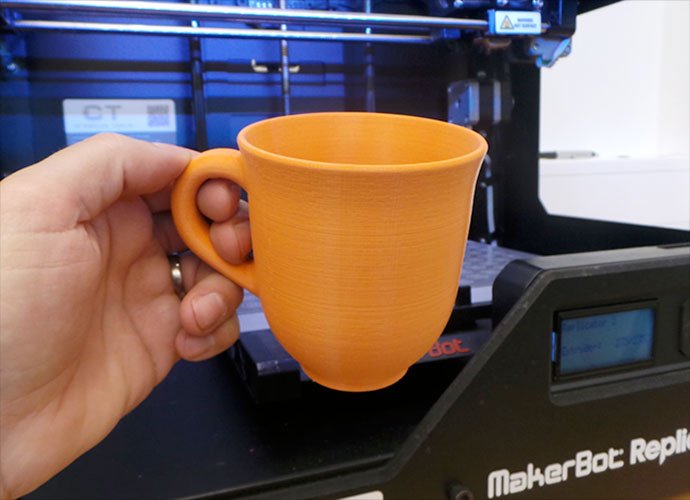Introduction
Are you considering a career in additive manufacturing? Now is a great time to explore careers in additive manufacturing. The industry is continuously growing and utilizing new technologies. This includes 3D printing and other cutting-edge techniques. Finding the ideal additive manufacturing employment can be difficult, though, with so many distinct jobs and specialties to select from. This article covers trends and projections for additive manufacturing jobs. It offers advice for finding the ideal position and advancing your career. Read on to discover helpful tips and ideas for the fast-paced additive manufacturing industry.
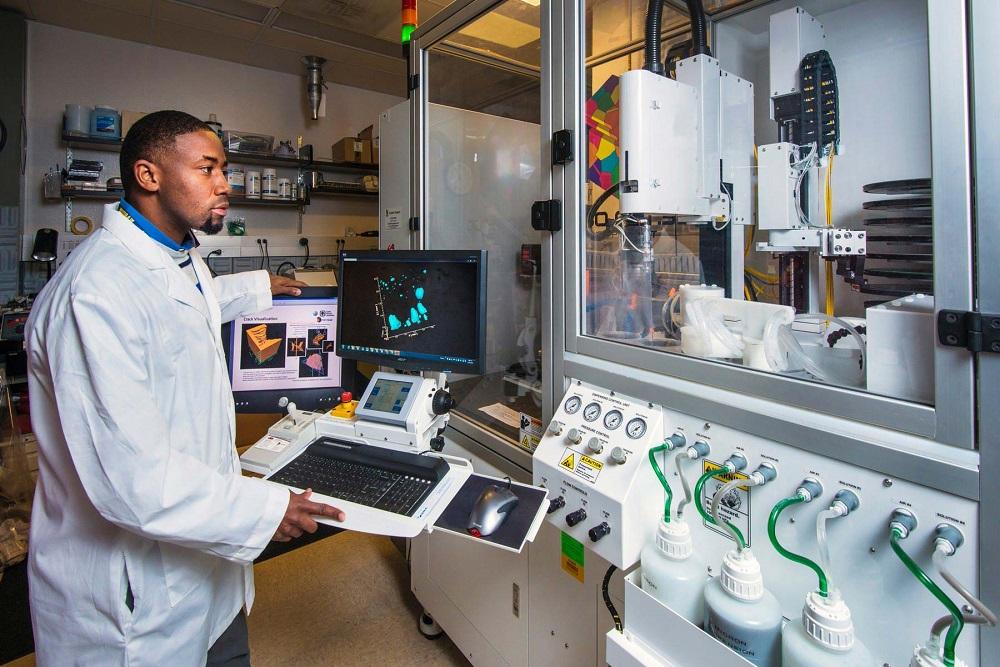
what is additive manufacturing?
Additive manufacturing is the process of creating 3D objects from digital models or designs. It’s also called 3D printing. Unlike traditional manufacturing techniques that involve removing material, additive manufacturing builds products by adding layers of plastic, metal, or ceramics. More design freedom and flexibility, as well as quicker and more effective production, is made possible by this. From aerospace and automotive to healthcare and consumer goods, additive manufacturing is employed in a wide range of industries.
why AM’s important?
The way we create, produce and distribute products could be completely changed by additive manufacturing. Additive manufacturing offers customization, quicker turnaround times, and less waste. It eliminates the limitations and inefficiencies of traditional manufacturing. Detailed and sophisticated designs that were previously challenging are now feasible. Additive manufacturing has broad effects on several industries, such as construction and healthcare. 3D-printed prosthetics and medical gadgets are more common in the healthcare sector. Additive manufacturing is explored for producing building components quickly and cost-effectively. It has the potential to democratize manufacturing by enabling small enterprises and individuals to manufacture high-quality products.
Mention that the focus of the post will be on finding jobs in this field
Additive manufacturing has clear benefits but struggles with talent retention. Finding and keeping skilled personnel is a major challenge in the industry. As the industry expands, the need for creative professionals will only increase. This post provides advice for those seeking employment in additive manufacturing. It offers tips and ideas for securing your dream job and building a successful career.
There are numerous career options in additive manufacturing. It is suitable for both fresh graduates and experienced professionals. The field offers many opportunities for career growth and development. From design and engineering to operations and management, the sector includes a wide range of positions and specialties. But, it can be difficult to know where to begin when there are so many possibilities available.
In this post, we will cover common AM job descriptions and required skills. Tips for job searching: online boards, networking, and industry events. Learn how to tailor your resume and cover letter to AM jobs. Get tips on adapting your CV and cover letter for AM jobs. Learn about future trends and job opportunities in additive manufacturing. Gain a better understanding of the evolving AM job market and how to succeed in it.
Overview of the Additive Manufacturing Jobs Market
The additive manufacturing job market is growing and evolving rapidly. It provides various roles and specializations for professionals at all levels. Despite COVID-19 challenges, the global AM market grew by 7.5% in 2020, according to Wohlers Associates. As more industries adopt AM technologies, this trend is expected to continue in the future. Typical job titles in additive manufacturing include 3D printer technician, engineer, designer, developer, and manager. Skills required for these positions vary, from project management and communication to technical proficiency in 3D printing and CAD software. Additive manufacturing offers diverse career opportunities for those with a range of skills and interests.
Additive manufacturing has new positions and specialties besides traditional job titles. These positions require knowledge of the technology and its applications. An in-depth understanding of market advancements and trends is essential. Some specialized roles include post-processing, quality control, and material development. Staying current with the latest technology is critical for success in additive manufacturing. The additive manufacturing job market offers many opportunities for innovative professionals. It is a dynamic and growing field with numerous interesting and rewarding careers. Whether you’re starting out or looking to advance your career, there are plenty of options.
Growth of the AM industry and its impact on job creation
Businesses recognize tech potential, revolutionize production, and open new design possibilities for 3D printing and additive manufacturing. Enormous growth and innovation occur in the world of 3D printing and additive manufacturing. The industry demands experts with specialties in engineering, design, materials science, and software development. The 3D printing market is to reach $51 billion by 2025 with 26% annual growth rate, as predicted by industry projections. Increasing capacity for additive manufacturing leads to noticeable job creation and new applications of technology. 71% of 3D printing businesses surveyed plan to hire more staff members in the coming years.
In the field of additive manufacturing, there are many different jobs and specialties that can be pursued. Design and engineering, operations and management, and research and development are some of the professions that are in high demand. In allied sectors like materials science and post-processing, there are also lots of new jobs and prospects. Additive manufacturing growth will bring job opportunities and aid global economic advancement. This is a great time to consider a career in additive manufacturing for professionals and graduates. It is an exciting industry to explore and diversify skill sets.
The types of companies that are hiring for AM jobs
Additive manufacturing is growing in various sectors like healthcare, automobile, and aerospace. Businesses recognize the need to invest in additive manufacturing technologies. Qualified personnel is needed to lead these initiatives in companies of all sizes.
Startups
Startups are one sort of business that commonly hires for jobs in additive manufacturing. The additive manufacturing industry has new businesses focusing on creating new technologies and applications. These businesses require talented individuals to help advance their initiatives. Startups offer opportunities to work on cutting-edge initiatives and contribute to business expansion and success. Working at startups can provide a dynamic and exhilarating work environment.
Established manufacturers
A significant source of employment for additive manufacturing is reputable manufacturers. Additive manufacturing jobs require professionals with expertise in design, engineering, and materials science. These experts can help companies implement 3D printing and other additive manufacturing technologies. Established manufacturers offer steady employment, chances for professional development, and work on large-scale projects.
Research institutions
Universities and research institutions are additional employers in the additive manufacturing sector. Innovative businesses lead in developing AM technology & exploring new applications. Researchers with advanced degrees can find exciting opportunities in these companies. Working with renowned experts on cutting-edge projects is possible in this industry. Additive manufacturing jobs are in demand across industries. This indicates the growing importance of technology. There are plenty of exciting opportunities available. Whether you prefer startups, established companies, or research institutions.
Common Job Titles and Skills in Additive Manufacturing
Additive manufacturing includes diverse roles and specializations. It needs professionals with a wide range of skills and expertise. The industry requires a blend of technical, engineering, and business skills. To succeed in AM jobs, professionals must be adaptable and problem-solvers. Here are some of the most common job titles and skills you might encounter in additive manufacturing:
Design and Engineering
Additive manufacturing designers and engineers create and refine 3D models. They use CAD software and other tools to develop detailed plans. Professionals require a strong background in materials science, design principles, and engineering concepts. Experience with additive manufacturing technologies and software is also necessary.
crucial role
Designers and engineers are key to additive manufacturing success. Their role is to develop and perfect 3D models. They require knowledge of engineering concepts, design theories, and additive manufacturing hardware and software.
Suitable 3D model
Designers and engineers of additive manufacturing face major issues with 3D models. Additive manufacturing builds up layers of material to produce the desired shape. Traditional manufacturing frequently removes extra material to get a finished product. Designers and engineers need to consider layer thickness, support structures, and post-processing needs. Additive manufacturing requires a shift in how designers and engineers approach the design and construction of parts.
strong background
Successful additive manufacturing professionals need a strong materials science background. Competence with testing and analysis procedures is also important for engineering roles. Proficiency in CAD software and other tools is necessary for creating thorough designs. Collaboration with other experts in the field of AM is crucial for project success. Experts in materials science, operations management, and post-processing must be involved in the collaboration. Meeting project deadlines and required standards is a key goal in additive manufacturing.
Additive manufacturing designers and engineers are crucial to the industry’s growth. They aim to create new, innovative products and advance the capabilities of 3D printing. Careers in this rapidly growing field can be fascinating and fulfilling for those with the right skills and experience.
Materials Science
Additive manufacturing materials scientists develop new materials and processes for 3D printing. They work to improve additive manufacturing techniques. Their goal is to create materials suitable for additive manufacturing. They also ensure the materials are safe and environmentally friendly. They require a deep understanding of materials’ properties and behavior, as well as experience with testing and analysis techniques.
A crucial area of knowledge in the additive manufacturing sector is materials science. Knowing materials is key for additive manufacturing. Different materials behave differently in 3D printing. Understanding metal, polymer, ceramic, and composite properties is essential. Scientists must develop new materials for 3D printing. Improving current materials is also important for better 3D printing. Materials scientists create compatible materials for additive manufacturing, considering viscosity and thermal characteristics. They must also ensure materials meet the criteria for strength and durability. They work to make materials suitable for specific 3D printing methods.
Balancing priorities is a challenge for materials scientists in additive manufacturing. Robust materials may be difficult to 3D print or too expensive. Materials easy to 3D print may lack the necessary qualities for a specific use. Collaboration with experts like designers and engineers is key to finding ideal properties. Additive manufacturing relies heavily on materials science experts. This discipline is essential in the sector. The demand for materials science experts is high. Materials scientists can have exciting and fulfilling careers in this quickly expanding industry with the correct skills and expertise.
Operations and Management
Additive manufacturing operations and management professionals manage AM facilities. They oversee daily operations, ensuring equipment is well-maintained and optimized. The goal is to achieve maximum efficiency and output in AM processes. They require strong project management and organizational skills, as well as experience with lean manufacturing principles and quality assurance techniques. The additive manufacturing sector depends on operations and management. Businesses need operations and management experts for effective AM operations. Additive manufacturing technologies are continuously evolving and expanding. Experts ensure the smooth functioning of additive manufacturing operations in businesses.
Managing Additive Manufacturing Operations
Additive manufacturing has operations managers overseeing daily activities. Their role is to ensure that projects are completed on time and to the required standards. They lead teams of experts in design, engineering, and materials science. They must be highly knowledgeable about additive manufacturing procedures and have practical knowledge of project management tools and methods. Additive manufacturing businesses need personnel with knowledge of various management disciplines. These include supply chain management, logistics, and quality assurance. Operations managers are also required. Specialists in these areas play a crucial role in ensuring effective AM operations. They are responsible for obtaining raw materials and delivering final goods to consumers.
Challenges and Opportunities
Keeping up with changing technology and procedures is a challenge in additive manufacturing. Fast response is crucial for businesses to seize new opportunities. Specialists must keep up with developments and collaborate with others in the field. New technology and procedures should be incorporated into operations. Additive manufacturing requires experts in operations and management. These professionals are in high demand in the industry. They can have exciting and fulfilling careers with the right skills and expertise.
Post-Processing
Additive manufacturing post-processing specialists refine 3D-printed parts. They use techniques such as sanding, polishing, and painting. Their goal is to achieve the desired aesthetic and functional qualities. They require strong attention to detail and experience with finishing techniques and materials. The process of additive manufacturing is not complete without post-processing. To acquire the desired surface smoothness, texture, or other physical attributes, a printed object frequently needs additional processing. Techniques for post-processing can also be utilized to improve the functioning or mechanical qualities of an item.
Enhancing Additive Manufacturing Parts with Post-Processing Techniques
Sanding, polishing, coating, and painting are typical additive manufacturing post-processing methods. These methods are frequently employed to enhance the surface finish of an item or to incorporate decorative elements. To attain the desired qualities, several additive manufacturing technologies also call for further stages like heat treatment, sintering, or annealing. Post-processing can involve the use of specialist software or instruments. Checking and measuring parts is crucial to ensure they meet the required criteria. X-ray or CT scanning may be used to check for interior structures or flaws. Optical or laser scanners can collect 3D data on a printed object.
Post-processing is crucial for ensuring parts meet requirements and function as intended. It may increase costs and prolong the process, but it’s necessary for quality control. Steps like polishing, sanding, and heat treatment can improve the final product’s performance. Without proper post-processing, additive manufacturing products may have defects and limitations. Professionals with knowledge of post-processing methods are therefore in high demand in the additive manufacturing sector. Post-processing is crucial for additive manufacturing. Individuals with this background have fulfilling careers. They can encourage innovation and expansion in the industry. Keeping up with recent methods and tools is important.
Software Development
Additive manufacturing software developers work to create and refine the software tools and platforms used in 3D printing and other additive manufacturing processes. They require strong programming skills and experience with software development methodologies and tools.
An essential component of the additive manufacturing sector is software development. It is essential to the design and manufacturing of 3D-printed items. There are numerous opportunities for software developers in the additive manufacturing sector, ranging from CAD software used to design parts to software that controls the 3D printing process to software that evaluates and optimizes parts for performance.
The creation of simulation and modeling software is a crucial area of software development for additive manufacturing. These instruments can aid in predicting how a part will function under various circumstances, such as temperature changes, stress, or other environmental factors. This can aid in optimizing a part’s design and ensuring that it functions as planned.
There are numerous prospects for software developers in the fields of process control and automation in addition to simulation and modeling software. Software that can assist in automating and enhancing the printing process is becoming more and more necessary as additive manufacturing techniques get more intricate and advanced.
In the additive manufacturing sector, software development is a crucial area of competence. People with experience in software development might pursue fascinating and difficult careers in this area and contribute to the industry’s innovation and expansion. Professionals in this discipline can contribute to ensuring that the additive manufacturing sector thrives and develops by keeping up with the most recent software development methodologies and technology.
additive manufacturing technician
On the other side, an additive manufacturing technician is in charge of running and keeping up 3D printing machinery, debugging problems, and making sure manufactured products are of a high standard. Together with the understanding of design tools, material parameters, and post-processing procedures, this position calls for practical experience with 3D printing technology.
The additive manufacturing sector is heavily dependent on technicians in this field. These experts are in charge of running, repairing, and taking care of 3D printers and associated machinery. They also keep an eye on the printing procedure to make sure it goes smoothly and generates high-quality parts.
One of the main duties of additive manufacturing experts is preparing printing materials and calibrating, maintaining, and troubleshooting printers for any problems that can occur. Also, they could be in charge of post-processing tasks including cleaning, finishing, and checking items to make sure they adhere to quality requirements.
Manufacturing additive Technical expertise, superior problem-solving abilities, and attention to detail are all requirements for technicians. They should be at ease using a variety of tools and software and be able to work both independently and collaboratively.
There is an increasing need for competent additive manufacturing technicians as the sector continues to expand. Specialists in this field have the opportunity to work in a variety of industries and applications, from automotive and aerospace to consumer goods and medical devices.
Essential Skills for Additive Manufacturing Jobs
The need for qualified experts in this subject is increasing as the additive manufacturing sector expands and changes. For occupations involving additive manufacturing, a wide range of skills are necessary, from materials science to engineering to project management. In this section, we’ll look at some of the crucial abilities required of individuals who want to succeed in this fascinating and fast-paced sector. This guide will give you the information and insights you need to be successful in additive manufacturing employment, whether you are just starting out in your career or are a seasoned professional trying to enhance your skill set.
Technical proficiency
For professionals working in additive manufacturing, technical proficiency is one of the most crucial abilities. This talent necessitates extensive knowledge of 3D printing and other additive manufacturing techniques, as well as practical expertise with CAD software and material properties. Experts with strong technical skills are able to make changes to digital drawings, choose the best materials for each project, and run 3D printers and other machinery precisely.
Professionals should maintain current knowledge of the most recent developments in additive manufacturing technology in addition to their fundamental technical skills. This entails learning about new trends, investigating cutting-edge hardware and software platforms, and going to trade shows and workshops. Professionals may keep on top of trends and compete in the job market by constantly improving their technical abilities.
The knowledge of materials science and engineering principles, experience with design software like SolidWorks and Autodesk Fusion 360, and familiarity with a variety of 3D printing technologies like Fused Deposition Modeling (FDM), Stereolithography (SLA), and Selective Laser Sintering are some of the specific technical skills required for jobs in additive manufacturing (SLS). Professionals can excel in a range of additive manufacturing professions by having strong technical expertise in these areas.
Materials science
For experts working in additive manufacturing, materials science is an additional crucial ability. This ability requires a thorough grasp of how various materials react to various environmental conditions, such as temperature, humidity, and stress. The quality, strength, and durability of printed items can be affected by materials science, making it particularly crucial in additive manufacturing.
Experts with a good foundation in materials science are capable of choosing the best materials for each project, adjusting printing conditions to get the required results, and troubleshooting issues with material properties. Also, they have the capacity to create novel materials, such as improved composites and metal alloys, that can increase the capabilities of additive manufacturing.
Knowledge of polymer chemistry, comprehension of metallurgy and powder metallurgy, and experience with cutting-edge materials like carbon fiber and graphene are some of the specific abilities that are crucial for materials science in additive manufacturing. These professionals are highly sought after in the additive manufacturing sector and can take on a range of responsibilities, from product design and manufacturing to research and development.
Engineering principles
Engineering fundamentals are essential knowledge for success in occupations requiring additive manufacturing. Professionals may design, develop, and test parts for additive manufacturing by using these principles. Additionally, they aid in spotting design defects and putting them into practice so that the final product’s usefulness and quality can be improved.
Engineering principles from the fields of mechanics, thermodynamics, and materials science are some of the fundamental ones for additive manufacturing. Engineering experts that have a solid foundation in engineering concepts may create designs that are optimized while taking into account the constraints of additive manufacturing, such as the strength and durability of printed parts. To make sure the finished product fulfills quality requirements, they might also establish testing techniques and examine the performance of parts.
Professionals engaged in research and development must also be familiar with engineering principles. These people are in charge of pushing the limits of additive manufacturing and creating new methods and tools that can improve this industry’s capabilities. They may design experiments, gather data, and analyze outcomes to improve the field of additive manufacturing if they have a solid basis in engineering principles.
Post-processing
In additive manufacturing, post-processing refers to the process of finishing printed items after they have been made. To enhance the part’s final appearance and functioning, this process may involve activities like sanding, polishing, or painting. Support structures, which are employed during the printing process to guarantee that the part retains its shape, are likewise taken out during post-processing.
People with experience in additive manufacturing positions should be familiar with post-processing procedures. They must be able to choose the best post-processing method for the task at hand by comprehending how various methods can affect the final outcome. This necessitates close attention to detail because even minor post-processing mistakes can compromise the final part’s quality and usefulness.
Professionals in post-processing positions also need to have a solid grasp of safety protocols. Many post-processing methods entail the use of substances or tools that, when misused, might be dangerous. To avoid exposure to dangerous chemicals or injuries when conducting post-processing operations, professionals must adhere to strict safety measures. They must also be able to recognize potential risks and take the necessary action to lessen them.
Quality control
Quality control is a critical aspect of additive manufacturing jobs. It involves the inspection and testing of printed parts to ensure that they meet specific quality standards. Quality control professionals must be familiar with the various testing methods used in additive manufacturing, such as dimensional analysis, visual inspection, and mechanical testing.
Professionals in quality control roles must have a keen eye for detail and be able to identify defects or inconsistencies in printed parts. They must also have a strong understanding of industry standards and regulations related to quality control. This includes knowledge of ISO standards, FDA regulations, and other relevant industry guidelines.
Professionals working in quality control roles must be able to work closely with other members of the additive manufacturing team to ensure that printed parts meet the required quality standards. They may need to provide feedback to designers and engineers to help improve the design of future parts. They may also need to work with post-processing professionals to identify and correct defects in printed parts. Overall, quality control professionals play a critical role in ensuring that printed parts are of high quality and meet the needs of the end user.
Project management
Project management is a necessary skill for employment involving additive manufacturing. In order to ensure that all activities are done on schedule and within budget, professionals in these positions must be able to manage complicated projects from start to end. They must be able to apply project management techniques like Agile and Scrum to the additive manufacturing process and have a firm grasp of these techniques.
Project management experts need to be able to collaborate closely with other designers, engineers, and technicians on the additive manufacturing team. They must be able to communicate clearly and make sure that everyone on the team is aware of their respective tasks. They must also be able to recognize prospective problems and have backup strategies to deal with them.
Professionals in project management positions need to be well organized and capable of managing several projects at once. Effective task prioritization and adherence to deadlines are essential for them. They must also be able to monitor development and give stakeholders regular updates.
In general, project management is a key competency for careers in additive manufacturing. By doing this, projects are guaranteed to be finished on schedule, under budget, and to the necessary quality standards. These professionals are crucial to the success of initiatives involving additive manufacturing.
Collaboration
Working in cross-functional teams is a need for many professions in additive manufacturing, therefore collaboration is a crucial ability. Effective collaboration requires the capacity to communicate clearly with others, exchange knowledge, and jointly create solutions.
To guarantee that projects are effectively completed, specialists in additive manufacturing must be able to work collaboratively with designers, engineers, technicians, and other team members. Effective communication, active listening, and being receptive to many viewpoints and ideas are required for this.
The capacity to function well under pressure and maintain composure under trying circumstances are additional needs for collaboration. Due to the complexity and tight deadlines of additive manufacturing projects, it is crucial for people in these positions to be able to perform successfully under pressure.
In general, cooperation is essential to the success of initiatives involving additive manufacturing. It enables teams to collaborate successfully, share information and skills, and create creative solutions that satisfy customers’ and stakeholders’ expectations. The additive manufacturing sector places high importance on professionals that succeed in teamwork.
Business acumen
Business acumen is an important skill for additive manufacturing professionals, particularly those in management or leadership roles. This skill involves understanding the financial and strategic aspects of the additive manufacturing industry, as well as the broader business landscape.
Additive manufacturing professionals with business acumen are able to identify new opportunities for growth, develop and execute effective business plans, and make informed decisions based on financial and market data. They also have a deep understanding of the competitive landscape and are able to position their organizations for success.
In addition to financial and strategic skills, business acumen also involves effective communication and negotiation skills. Professionals in these roles must be able to effectively communicate the value of additive manufacturing to stakeholders, negotiate contracts and deals, and build strong relationships with customers and partners.
Overall, business acumen is critical for success in additive manufacturing roles that involve leadership, management, or strategic decision-making. Professionals with this skill are well-positioned to drive growth and innovation in the industry and to achieve long-term success for their organizations.
Problem-solving
Professionals in additive manufacturing must have strong problem-solving abilities because they frequently have to come up with innovative solutions to difficult problems. Strong problem-solving abilities enable professionals to see problems and create solutions that strike a balance between business goals and technological needs.
Problem-solving experts in additive manufacturing are able to tackle difficulties with a structured and analytical attitude, breaking them down into manageable components, and methodically testing solutions. They can also think creatively and unconventionally, investigating novel strategies and concepts in search of the ideal resolution.
Strong problem-solving abilities are essential for success in professions involving additive manufacturing because they allow professionals to work through challenging technical and business issues and promote innovation in the sector.
Adaptability
Adaptability is a key skill for additive manufacturing professionals, as the industry is constantly evolving and professionals in these roles must be able to adapt to changing technologies, processes, and business models. Professionals with strong adaptability skills are able to thrive in dynamic and fast-paced environments, and are able to quickly learn and master new skills and techniques.
Additive manufacturing professionals who excel at adaptability are able to stay up-to-date on the latest industry trends and technologies and are able to quickly integrate these new tools and techniques into their work. They are also able to pivot and adjust their approach in response to changes in the market or in customer needs, ensuring that their work is always aligned with business objectives.
Effective adaptability also requires strong communication and collaboration skills, as professionals in these roles must work closely with colleagues, partners, and customers to understand their needs and adapt their work accordingly. They must also be able to navigate and embrace ambiguity, as the additive manufacturing industry is still evolving and there may be uncertainty around the best path forward.
Overall, strong adaptability skills are critical for success in additive manufacturing roles, as they enable professionals to stay ahead of the curve and continuously innovate in the industry.
Methods for Finding Additive Manufacturing Jobs
Additive manufacturing is a rapidly growing field that offers exciting job opportunities for individuals with a range of skills and backgrounds. However, finding the right job in this industry can be challenging, particularly for those who are new to the field or unfamiliar with the job market. In this section, we will explore some effective methods for finding additive manufacturing jobs, including online job boards, industry events, networking, and working with recruiters. Whether you are a recent graduate or an experienced professional looking for a new challenge, these strategies can help you find the right job and take the next step in your career.
If you’re interested in finding a job in additive manufacturing, there are several methods you can use to search for and apply to job openings. Here are some common methods for finding additive manufacturing jobs:
Online job boards
A common and practical way to look for opportunities in additive manufacturing is through online job boards. Both more general job search websites that provide AM employment and numerous websites specifically specialized in job ads for this field are available. These websites make it simpler to find employment that fits your abilities and preferences by letting you search for jobs by keyword, location, income range, and other factors. The most well-liked job boards for AM positions are Monster, Glassdoor, LinkedIn, and Indeed. The competition for these positions can be tough, so it’s crucial to customize your application to stand out from the throng.
Company websites
Another excellent source for finding opportunities in additive manufacturing is company websites. Before or in addition to posting job opportunities on job boards, many businesses also publish them on their own websites. Directly viewing corporate websites will provide you a greater understanding of their culture, beliefs, and objectives, allowing you to better adapt your application to meet their requirements. Although they frequently publish job openings from their members, it’s also worthwhile to look through the careers sections of relevant trade groups or professional organizations. You can broaden your employment search and uncover chances you might not have otherwise found by visiting a range of corporate websites and connected organizations.
Professional networking
Professional networking is another effective method for finding additive manufacturing jobs. Networking allows individuals to connect with other professionals in the field, attend industry events, and gain insider knowledge about potential job opportunities. It is important to attend conferences, workshops, and other events related to additive manufacturing to build a network of contacts. LinkedIn is also an excellent platform to connect with industry professionals and search for job postings. Building a strong network of contacts can help job seekers learn about new opportunities, gain valuable industry insights, and ultimately land their dream job in additive manufacturing.
Industry publications
Industry publications can be a valuable resource for finding additive manufacturing jobs. These publications often feature job listings and articles about the latest trends and developments in the industry. Some popular examples include Additive Manufacturing magazine, 3D Printing Industry, and TCT Magazine. By regularly reading these publications and staying up-to-date on industry news, job seekers can gain valuable insights and make important connections that can lead to new job opportunities.
Recruitment agencies
Recruiting agencies can be a useful resource for people looking for careers in additive manufacturing. These organizations specialize in linking job candidates with openings that match their qualifications and skill set. They may have access to employment openings that are not publicly announced because they frequently have established relationships with businesses in the sector. Partnering with a recruiting firm can also give candidates extra assistance, such as help with resume writing and interview preparation, which can make them stand out to potential employers. It’s crucial to do your homework and pick a reliable company with experience in additive manufacturing.
How to Customize Your Resume and Cover Letter for Additive Manufacturing Jobs
To increase your chances of landing a job in the additive manufacturing (AM) industry, it is crucial to tailor your resume and cover letter to the specific job you are applying for. Here are some tips to help you create an effective application package:
- Highlight relevant experience: Review the job posting and identify the key skills and experience required for the position. Make sure to highlight any relevant experience you have that matches those requirements.
- Emphasize your technical skills: Since technical proficiency is an essential skill for AM jobs, make sure to highlight your knowledge of AM technologies and software.
- Showcase your accomplishments: Include specific examples of your accomplishments in previous roles that demonstrate your skills and expertise.
- Customize your cover letter: Use the cover letter to showcase your enthusiasm for the specific company and role you are applying for. Research the company and mention why you are interested in working for them.
- Proofread carefully: Double-check your resume and cover letter for typos and errors. You want to make a positive impression on potential employers, and a mistake can detract from your application.
By following these tips, you can improve your chances of standing out to hiring managers and landing a job in the growing field of additive manufacturing.
Future Trends and Predictions for Additive Manufacturing Jobs
Additive manufacturing is a rapidly growing industry with a bright future ahead. As technology advances, the demand for AM skills will only continue to rise. Some future trends and predictions for additive manufacturing jobs include the expansion of AM into more industries, such as healthcare, aerospace, and automotive. This growth will create a demand for skilled workers with specialized knowledge of AM materials, software, and hardware.
Another trend is the development of more efficient and sustainable AM processes, which will require experts in materials science, engineering, and software development. Additionally, as AM technology becomes more accessible, there will be an increase in small businesses and startups that utilize AM to create products, leading to a demand for professionals with business acumen and entrepreneurial skills.
It is also likely that AM jobs will become more integrated with traditional manufacturing processes, leading to a need for professionals who can work across multiple disciplines. This will require individuals with strong collaboration and problem-solving skills, as well as the ability to adapt to changing technologies and workflows.
Overall, the future of additive manufacturing jobs looks promising and offers a wide range of opportunities for skilled professionals. Staying up-to-date on industry trends an
Future Trends in Additive Manufacturing Jobs
As the field of additive manufacturing continues to evolve, there are several future trends that are expected to shape the job market. One major trend is the continued expansion of AM into new industries, such as aerospace, medical devices, and consumer products. This is likely to create demand for professionals with specialized skills and knowledge in these areas. Another trend is the development of more advanced and sophisticated printing technologies, such as multi-material and high-speed printing, which will require a new set of technical skills.
Another future trend in AM jobs is the increased demand for design engineers who can create complex models using advanced software tools. These engineers will be responsible for designing products that can be printed using additive manufacturing techniques, taking into account factors such as material properties and geometric constraints.
Furthermore, the role of technicians is expected to grow as more companies adopt AM in their production processes. Technicians will be responsible for setting up and maintaining the printing equipment, as well as performing post-processing tasks such as cleaning and finishing printed parts.
Overall, the future of additive manufacturing jobs looks promising, with new opportunities and career paths emerging as technology continues to advance and become more mainstream.
Staying Current and Upskilling in the Additive Manufacturing Jobs Market
It is critical to keep up with the most recent advancements and technology in additive manufacturing, as with any subject that is rapidly growing. This not only helps people remain competitive in the employment market, but it also helps businesses be lucrative and inventive.
Attending industry conferences and events, which frequently provide keynote speakers, workshops, and networking opportunities is one method to keep current. Professionals can network with peers at these events and learn about new advancements and ideas.
Pursuing chances for continuing education and training, such as online courses or certificates, is another method to stay current. These courses can aid students in learning new skills and expanding their understanding of particular facets of additive manufacturing.
Additionally, participating in business-related social media sites like LinkedIn can help people keep up with market developments and job prospects. Building one’s personal brand and establishing oneself as an authority can also be facilitated by networking with peers and thought leaders in the industry.
Generally, success in the job market for additive manufacturing requires being up-to-date and upgrading skills. Professionals can position themselves as significant assets to their businesses and progress their careers by staying current with changes and broadening their skill sets.
Conclusion
In conclusion, the sector of additive manufacturing is growing quickly and offering a wide range of career prospects in disciplines like design engineering, materials science, software development, operations management, and quality control. To be competitive in the employment market as the industry expands, it is essential to keep up with technological advances and upgrade one’s skills. AM job openings can be discovered by job seekers through online job boards, business websites, professional networking, trade periodicals, and recruiting firms.
In order to land a job in additive manufacturing, it’s crucial to customize your resume and cover letter to highlight your pertinent expertise and talents. Also, to stay competitive in the sector, people who are interested in a job in additive manufacturing should concentrate on honing their technical expertise, materials science knowledge, engineering concepts, project management skills, problem-solving talents, and flexibility.
In general, careers in additive manufacturing offer a promising and exciting career path for people interested in cutting-edge technologies and cutting-edge manufacturing techniques. Job seekers in this field should anticipate a bright future due to the continued growth of the AM industry and the rising demand for qualified personnel.
Main points of the post
In this post, we have explored the world of additive manufacturing (AM) jobs, including the growth of the industry and the types of companies hiring for AM positions. We have discussed common job titles and skills required for success in AM, including technical proficiency, materials science, engineering principles, post-processing, quality control, project management, collaboration, business acumen, problem-solving, and adaptability. We have also covered methods for finding AM jobs, including online job boards, company websites, professional networking, industry publications, and recruitment agencies. Finally, we have discussed future trends and opportunities in the AM job market and offered advice for staying current with industry developments and upskilling to stay competitive in the job market.
Final point
For those with the necessary qualifications and knowledge, there are many work prospects in the constantly expanding sector of additive manufacturing. With continuing expansion into new industries and rising demand for qualified workers, additive manufacturing has a bright future. As a result, it is a great moment for readers to learn more about employment in additive manufacturing and to seize the numerous opportunities that are present.
There are numerous resources accessible for those looking to enhance their education and find employees who are interested in pursuing a career in additive manufacturing. The many options available to anyone wishing to develop their knowledge and careers in this industry include online courses, professional organizations, and job boards.
In summary, additive manufacturing is a fascinating and quickly developing industry with a variety of work options for individuals with the necessary training and expertise. Individuals can develop lucrative professions in this industry and contribute to the ongoing development and success of additive manufacturing with the correct tools and commitment.
How to Explore Careers in Additive Manufacturing and Find Additive Manufacturing Jobs
- Research the industry
Start by learning more about additive manufacturing, its applications, and the different career paths within the field. Look for online resources such as industry reports, news articles, and professional associations.
- Identify your interests and skills
Think about your strengths and what you enjoy doing. Additive manufacturing offers a variety of roles, from technical to creative, so there is something for everyone.
- Get the right education and training
Consider pursuing formal education, such as a degree in engineering or materials science, or take online courses and certifications to gain technical skills in additive manufacturing.
- Network with professionals
Attend industry events and conferences, join professional associations, and connect with other professionals in the field to learn about job opportunities and stay up-to-date on industry developments.
- Tailor your resume and cover letter
Customize your application materials to highlight your relevant skills and experience in additive manufacturing. Use keywords and specific examples to show your expertise in the field.
- Search for jobs
Utilize online job boards, company websites, and recruitment agencies to find job openings in additive manufacturing. Network with professionals and ask for referrals to increase your chances of finding a job.
- Stay up-to-date
Continuously learn about new technologies and developments in additive manufacturing to stay competitive in the job market. Attend workshops and training sessions to upskill and gain new knowledge.
By following these steps, you can explore careers in additive manufacturing and find exciting job opportunities in this growing field.
FAQs about Additive Manufacturing Jobs
Some common job titles in additive manufacturing include additive manufacturing technician, engineer, designer, and materials scientist.
Essential skills for a career in additive manufacturing include technical proficiency, materials science knowledge, engineering principles, project management, collaboration, problem-solving, adaptability, and business acumen.
Some methods for finding additive manufacturing jobs include searching online job boards, checking company websites, networking with professionals in the industry, reading industry publications, and working with recruitment agencies.
